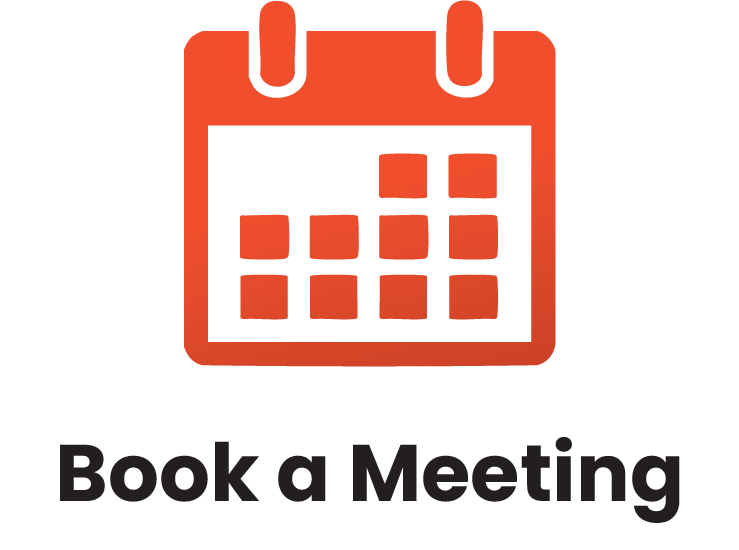Interactive training sessions led by experienced facilitators.
What is In-Person, Instructor-Led Training?
Our in-person training is delivered by a live facilitator who works directly with your team at your location. It’s our most popular format because it allows for real-time interaction, hands-on learning, and direct support.
Every session is tailored to your team’s specific goals, industry, and challenges—no generic, one-size-fits-all programs. Whether it’s a single session or a full training series, we design the experience to be relevant, practical, and fully aligned with your needs.
What is Live Webinar Training?
Live webinars are facilitator-led training sessions delivered online in real time. They’re ideal for teams working in different locations or with busy schedules.
This format offers shorter, more frequent sessions that are easy to coordinate—making it a convenient option for organizations with remote or distributed teams.
What is Virtual Classroom Training?
Virtual Classroom training is live, instructor-led training delivered online. It offers the same interactive experience as in-person sessions, with real-time discussions, group activities, and instructor feedback.
It’s a flexible option for organizations that want to reduce travel, save costs, or better fit training into busy schedules.
What is a Lunch & Learn Session?
Lunch & Learn sessions are short, facilitator-led training sessions delivered in person or online—typically during the lunch hour. They focus on specific topics or skills and offer a quick, engaging way to learn without a full-day commitment.
These sessions can be offered as one-time events or as part of a series, making them a great option for ongoing, bite-sized learning.
Online Learning
Enjoy our self-paced option and learn from anywhere!
$279.00 USD
Getting Along in The Workplace
Many people see conflict as a negative experience. In fact, conflict is a necessary part of our personal growth and development. Think of when you were trying to choose your major in college, for example, or trying to decide between two jobs.
However, conflict becomes an issue when the people involved cannot work through it. They become engaged in a battle that does not result in growth. When this type of conflict arises, negative energy can result, causing hurt feelings and damaged relationships.
This course will give participants the tools that will help you resolve conflict successfully and produce a win-win outcome.
LEARNING OBJECTIVES
Learning Objectives
- What conflict is and how it can escalate.
- The types of conflict and the stages of conflict.
- The five most common conflict resolution styles and when to use them.
- How to increase positive information flow through non-verbal and verbal communication skills.
- Effective techniques for intervention strategies.
- Ways to manage conflicts to enhance productivity and performance.


COURSE OUTLINE
Defining Conflict
During this session, you will give participants a chance to explore some assumptions about conflict and the positives and negatives of conflict.
Types of Conflict
This session will cover three main types of conflict: inner, interpersonal, and group.
Open Conflict vs. Hidden Conflict
Next, participants will explore open conflict and hidden conflict.
Spontaneous and Reflective Action
This session explores spontaneous and reflective action through a brief lecture.
The Johari Window
The Johari Window is a way of looking at our self-awareness and our ability to ask feedback of others. Participants will look at the Johari Window in detail through a personal exercise and a case study.
Stages of Conflict
During this session, participants will look at two models of the conflict process, some possible outcomes of a conflict, and strategies for dealing with conflict.
Creating the Win/Win
This session will give participants a chance to apply some of what they have already learned to a realistic case study.
Conflict Resolution Style Questionnaire
Participants will individually complete a questionnaire to help them identify their style of conflict resolution. Then, they will work in small groups to further examine their style.
The Role of Communication in Conflict Resolution
To begin the second day, participants will look at the communication chain as well as barriers that can impede communication. They will also learn about the concept of positive intent.
Active Listening Skills
Next, participants will learn the basics of active listening.
Paraphrasing Skills
In this session, participants will learn about, practice, and demonstrate paraphrasing techniques.
Powerful Questions
This session will give participants some useful questions and some proving techniques.
Body Language
Next, participants will learn how body language can help resolve conflicts.
Pre-Assignment Review
As a pre-assignment, participants were asked to complete a benchmark survey on their effectiveness at managing conflict. In this session, they will revisit their answers.
The Conflict/Opportunity Test
Using a role play, this session will give participants some questions that can help them identify the benefits of a conflict.
Conflict and Its Resolution
This session will look at a few processes that we can use to identify and resolve conflict.
Helping Others Through Conflict
Facilitation skills have become a cornerstone of many leadership models. This session will look at how facilitation, coaching, and group norms can be applied to conflict. Participants will also practice these skills in a role play.


















